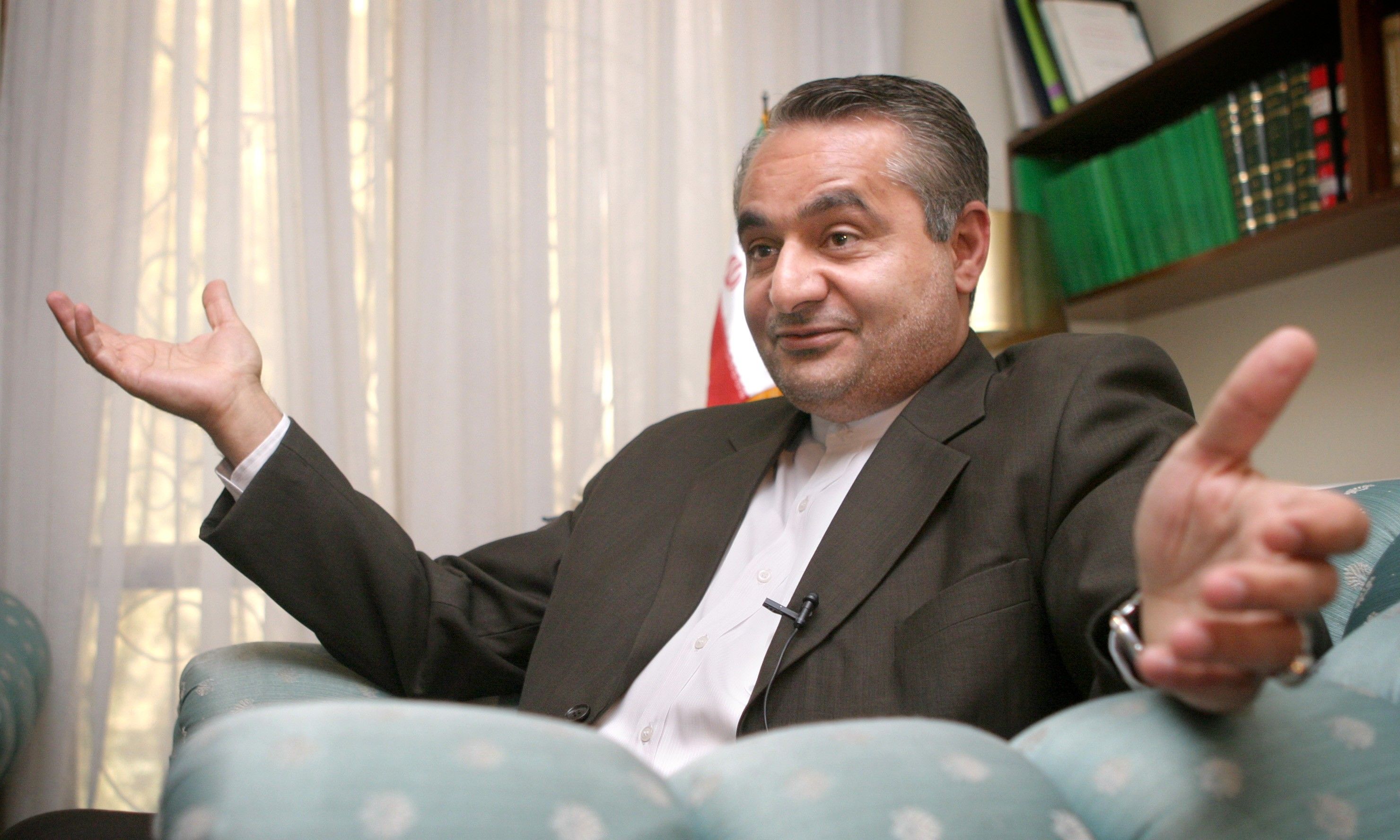By designating the Islamic Revolutionary Guards Corps (IRGC) a terrorist group, the U.S. has further hardened its position against the Islamic Republic of Iran, Seyyed Hossein Mousavian, the former Iranian ambassador to Germany (1990-97), has said.
In an editorial titled “The White House’s Two-Year Plan Against Iran,” published in the April 23 issue of the state-run Iran daily, Mr. Mousavian, who served as a senior member of Iran’s nuclear negotiating team under President Mohammad Khatami (1997-2005), urged Iranian officials to consider “the serious implications of the deepening political crisis between Iran and the U.S.” and act with caution.
“President Donald Trump does not wish to lock horns with the IRGC or start a war with Iran or change the regime,” Mousavian explained. “He rather hopes that sanctions will cause the collapse of the Iranian economy and ultimately force Tehran back to the negotiating table.”
Mousavian added: “Mr. Trump and his National Security Advisor John Bolton do not agree on Iran. Trump’s main aim is to score a political win by forcing Iran back to the negotiating table. Mr. Bolton, however, wants a regime change and to break up Iran into smaller regions.”
“The Trump administration has gradually sidelined all moderates inside the U.S. government,” Mousavian noted. “The U.S. Congress would support any hardline policy against Iran except an all-out war and that is why it has not objected to tougher sanctions against Tehran and the designation of the IRGC as a foreign terrorist entity.”
Mousavian added: “Israeli Prime Minister Benjamin Netanyahu and Saudi Arabia’s Crown Prince Mohammad Bin Salman wish to see a regime change in Iran without having to start a war. They instead hope the U.S. will take military action against Iran. Israel and Saudi Arabia have been urging the U.S. to launch limited military attacks on selected Iranian targets.”
Mousavian argued that the “‘Netanyahu-Bolton-Bin Salmon Triumvirate’ is trying to provoke Tehran into reacting hastily and violently to pressure, which would destroy any chances that Tehran might have of improving ties with Washington even if Democrats were to win the 2020 elections.”
The editorial in Iran daily does not clarify whether Mousavian and his like-minded friends believe the U.S. will attack Iran or not. Mousavian insists that Trump would like to see regime change in Iran without having to start a war. He argues that by designating the IRGC as a terrorist group, the U.S. could link the Iranian military with Al-Qaeda, and therefore would not need Congress’ approval for attacking Iran.
The U.S. Congress ratified the Authorization for the use of Military Force (AUMF) Act on September 14, 2001, which gives the president the authority to use “all necessary force against those whom he determined planned, allowed, committed or aided the September 11th attacks, or who harbored said, persons or groups.” The Trump administration’s foreign policy on Iran, however, does not explicitly mention either military action or regime change.
Mousavian also believes that by trying to keep the Islamic Republic on the Financial Action Task Force (FATF) list of Non-Cooperative Countries or Territories (NCCTs), the U.S. hopes to dissuade China, Russia, and Turkey from engaging in trade with Iran.

In November 2018, Iranian President Hassan Rouhani claimed that he had refused eight direct and three indirect attempts by the U.S. to negotiate with him.
Mousavian said: “Even if Mr. Rouhani was telling the truth, the time for such talks is over, because the campaign for the 2020 presidential and Congressional elections will start in the fall. It would, therefore, be perilous for Trump to enter negotiations with Iran during this time.”
Mousavian warned: “Iranian officials should not base their decisions on the outcome of the U.S. elections. Trump’s popularity is rising among the American public, and there is no guarantee that the Democrats will win the 2020 elections. Also, the winner of the next presidential election, whoever he or she may be, cannot rebuild all that Trump administration has deconstructed in the past two years.”
A week before Trump announced the U.S. withdrawal from the Joint Comprehensive Plan of Action (JCPOA), known as the Iran Nuclear deal, Mousavian wrote a commentary titled “How Bullying Iran Could Backfire for Trump,” for Reuters online in which he said: “If Trump withdraws from the JCPOA, he should not do so thinking Iran is vulnerable and in dire straits. Contrary to the perception of some in Washington, Iran’s key economic indicators are strong and growing. Its GDP grew 11 percent last year, average real per capita income is on the rise and the price per barrel of oil is hovering around $70 and on an upward trajectory,”
However, since the publication of Mousavian’s commentary in Reuters, the U.S. has introduced a second set of sanctions targeting Iran’s banking, shipping, and ship-building sectors. It also organized a two-day summit in February 2019 in Warsaw, Poland which united 63 countries against the Islamic Republic and designated the IRGC as a foreign terrorist organization on April 8. The U.S. Department of Treasury will end sanctions exemptions for eight major importers of Iranian oil in May.
[Translated from Persian by Fardine Hamidi]

